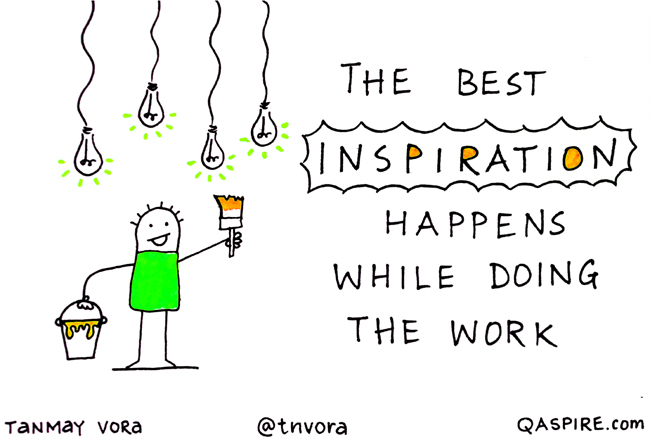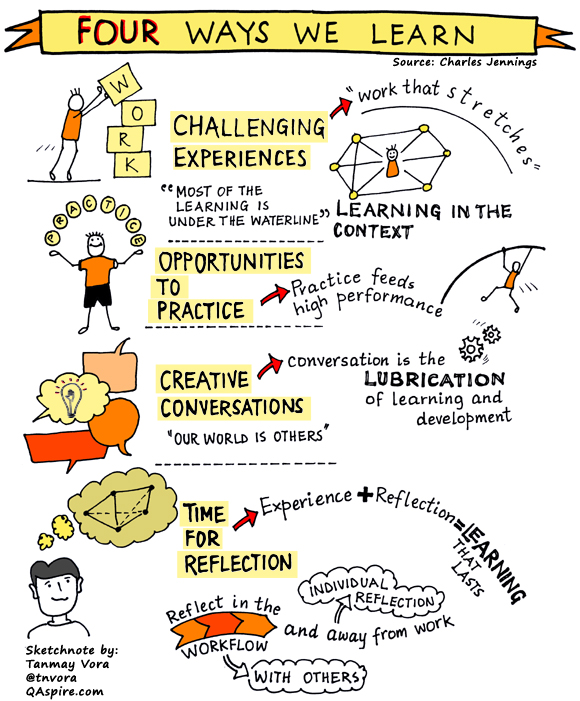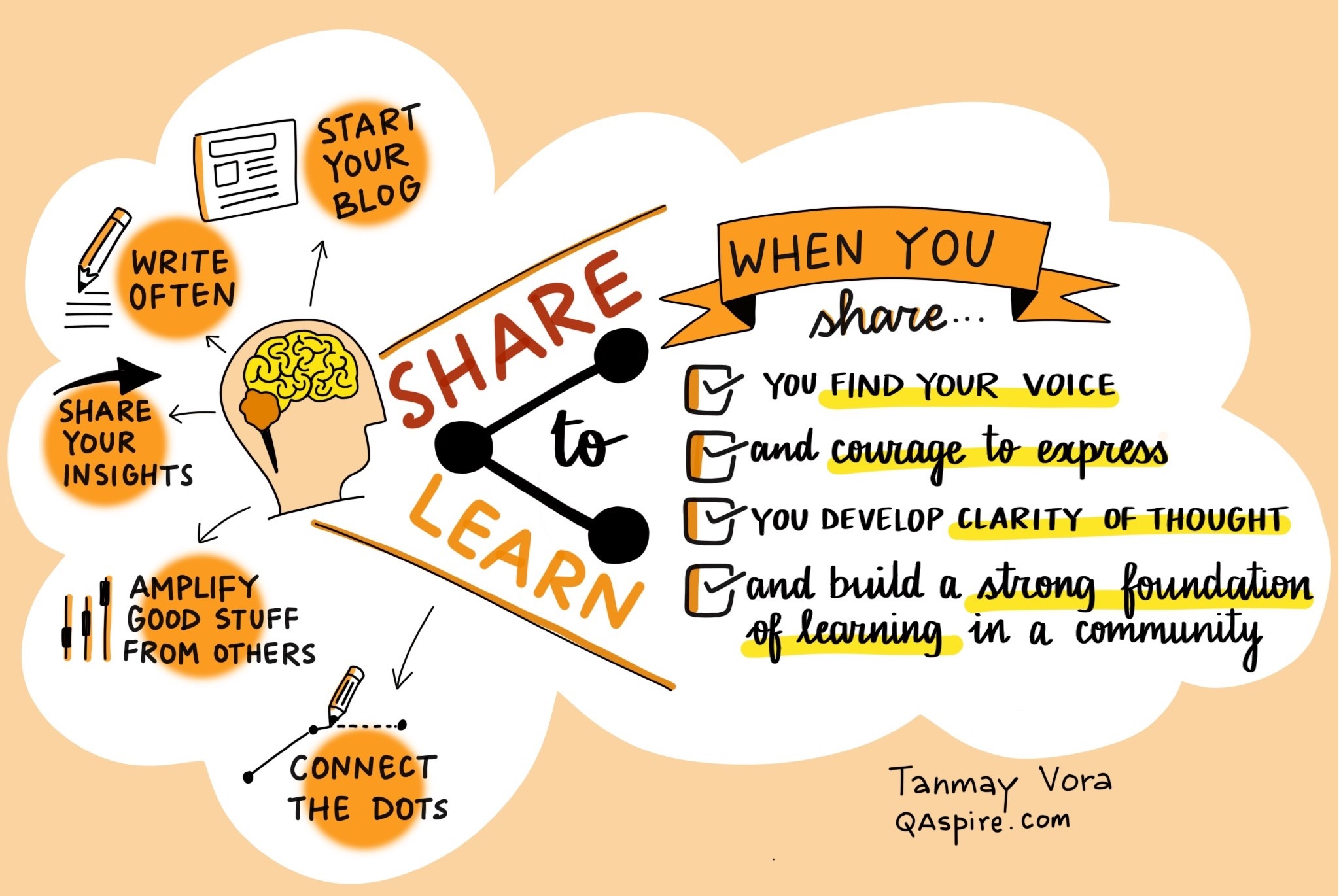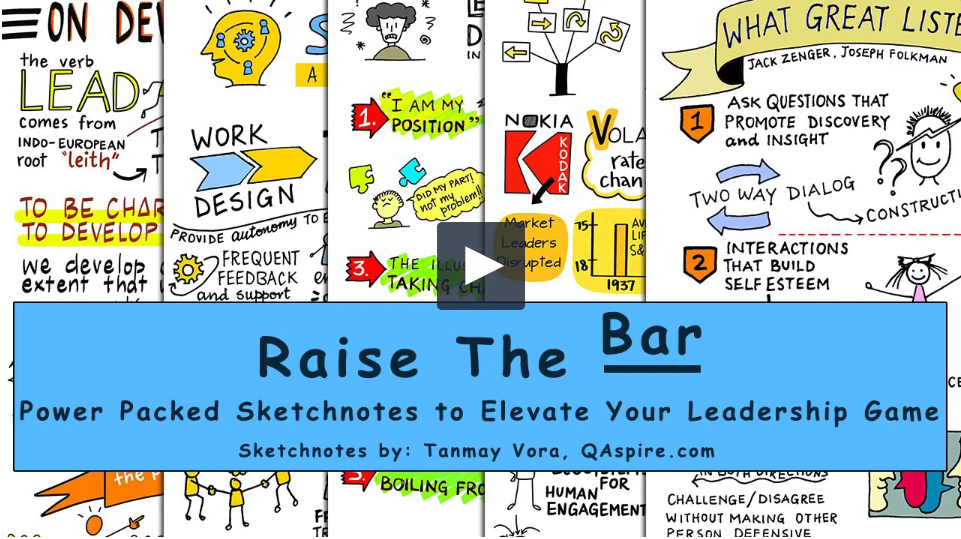On Learning, Raising the Bar and Using Social Media
Tanmay Vora
Today happens to be be World Social Media Day.
If you are trying to use social media for intentional learning and self-development, here are a few things that have worked for me and may work for you as well.
Having Right Filters
Clay Shirky said this in 2008,
“Its not information overload. It’s filter failure.”
You can’t pay attention when you try to consume everything that comes your way. You need to filter what comes to you. I read blogs and publications I trust through RSS subscription. I have ensured that my RSS feed has a good mix of creators, instigators and curators. Creators bring fresh perspectives, instigators provoke action through their writing and curators bring diverse insights providing a wider lens to look at things. On Twitter, I use Twitter lists with people I want to follow and learn from. I read and review books recommended by close friends and people I trust. I listen to my favorite podcasts in the spirit of slow learning.
Only when we are intentional about having right filters that we can make our social media experience meaningful and enriching.
Process What You Read/See
Right filters only bring the right insights to you but not all insights you consume will resonate with you. In my case, about 15-20% of all I read really resonates.
Austin Kleon once suggested that we read with a pencil. I experimented with it and found it to be a powerful technique. Whenever I read, see or listen something that resonates with me, I make it a point to write what I learned. Sometimes its verbatim and other times, it is my interpretation of what I understood. Annotation and summarizing enables me to add my own unique experiences into the topic and the resonance grows. I feel that when I extract the essential insight, I am also adding some of my own and the activity of passive consumption turns into an active conversation.
In fact, the sketchnotes that I create are primarily a way to process what I consume so that I can learn immersively and internalize the insights. When I write, it becomes a thread in the fabric of my understanding.
Do something about what you learn
Unless you do something about what you learn, you will never know if what you learned is really useful. When you consume, there is an element of belief. You believe what you consume because it resonates with you. When you DO something or create with what you learn through small experiments, you actually know the real impact. You learn the most while doing things. If your learning does not elevate your capacity to do something, it is merely an intellectual stimulation.
The best learning actually happens when you put what you learn into practice, create stuff that resonates with others and changes them for better. Then your work becomes art.

It starts with small experiments and when you repeat, you gain mastery by incrementally improving in each iteration.
Reflect on Your Experiments
Reflection is a powerful force in enabling learning and insights. When you reflect on whatever it is that you are doing, it leads to insights that are uniquely yours. The lessons have come to the fore through your own lens of doing and learning.

Charles Jennings rightly said that reflection requires self-awareness and ability to critically evaluate experiences, actions and results. It requires you to step down the treadmill of doing and think about the purpose, techniques, process, tools and your overall approach through the lens of what worked and what could be done better.
Reflection is a powerful way to critically assess what you execute and improve upon it.
Share What You Learn
From the journey so far, you are now equipped with your own unique insights that can help others. There are others out there in the community who have similar insights and experiences.

When you share what you learn consistently, you enable others to be a part of it, contribute to add and add to your knowledge. In a community, knowledge grows through conversation and co-creation of insights.
We learn the best when we learn with others.
[New] Raise The Bar: Pack of Sketchnotes on Leadership, Learning and Change
Having an attitude to lead and a mindset to learn are vital to thrive in a new world of work. The best leaders are relentless learners. This is a collection of 68+ powerful and actionable insights in form of high-resolution sketchnotes. These insights are packed with wisdom to help you raise the bar of leadership and learning for yourself, your teams and your organization. Do check it out.
